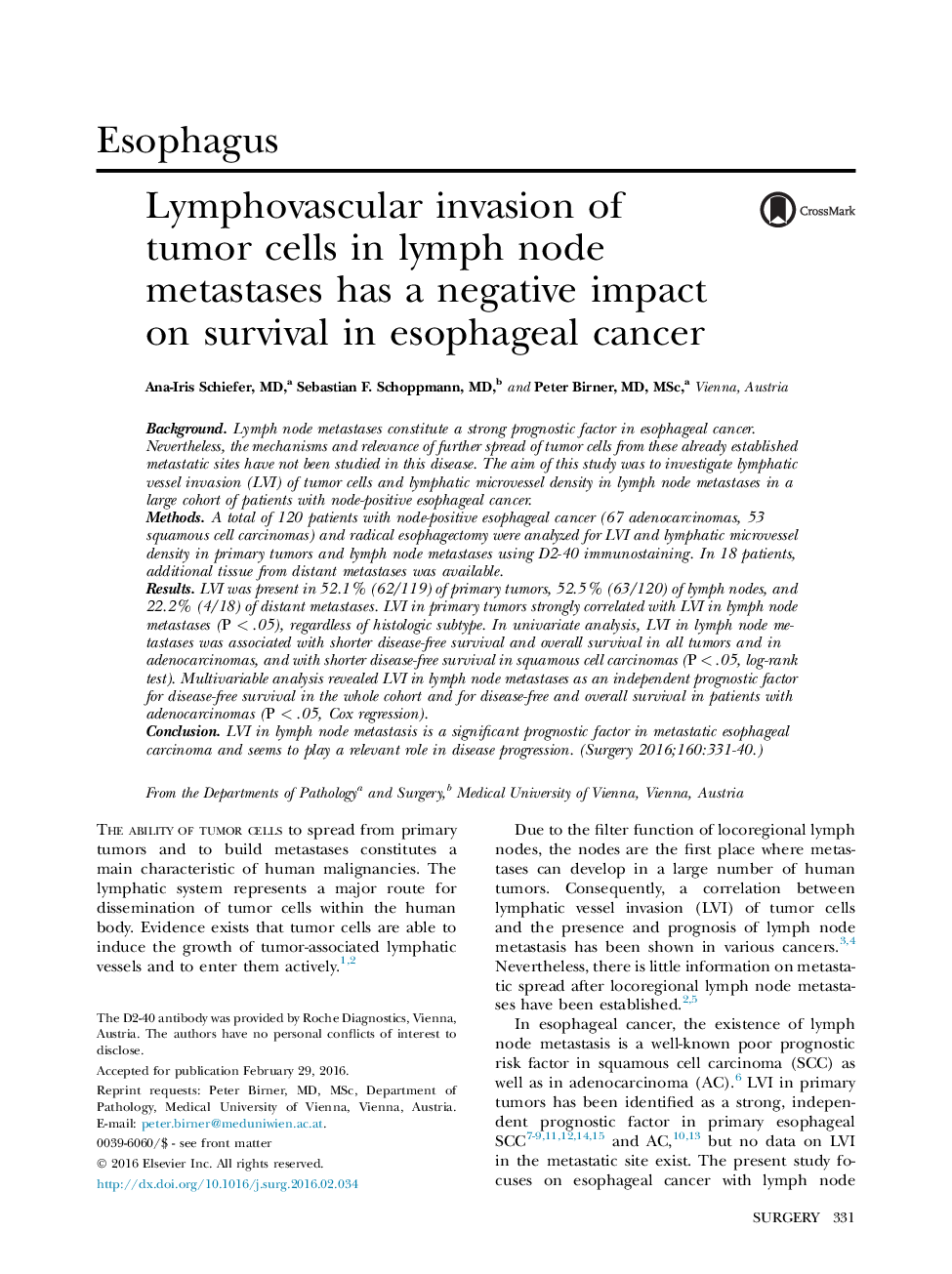| Article ID | Journal | Published Year | Pages | File Type |
|---|---|---|---|---|
| 6254955 | Surgery | 2016 | 10 Pages |
BackgroundLymph node metastases constitute a strong prognostic factor in esophageal cancer. Nevertheless, the mechanisms and relevance of further spread of tumor cells from these already established metastatic sites have not been studied in this disease. The aim of this study was to investigate lymphatic vessel invasion (LVI) of tumor cells and lymphatic microvessel density in lymph node metastases in a large cohort of patients with node-positive esophageal cancer.MethodsA total of 120 patients with node-positive esophageal cancer (67 adenocarcinomas, 53 squamous cell carcinomas) and radical esophagectomy were analyzed for LVI and lymphatic microvessel density in primary tumors and lymph node metastases using D2-40 immunostaining. In 18 patients, additional tissue from distant metastases was available.ResultsLVI was present in 52.1% (62/119) of primary tumors, 52.5% (63/120) of lymph nodes, and 22.2% (4/18) of distant metastases. LVI in primary tumors strongly correlated with LVI in lymph node metastases (PÂ <Â .05), regardless of histologic subtype. In univariate analysis, LVI in lymph node metastases was associated with shorter disease-free survival and overall survival in all tumors and in adenocarcinomas, and with shorter disease-free survival in squamous cell carcinomas (PÂ <Â .05, log-rank test). Multivariable analysis revealed LVI in lymph node metastases as an independent prognostic factor for disease-free survival in the whole cohort and for disease-free and overall survival in patients with adenocarcinomas (PÂ <Â .05, Cox regression).ConclusionLVI in lymph node metastasis is a significant prognostic factor in metastatic esophageal carcinoma and seems to play a relevant role in disease progression.
